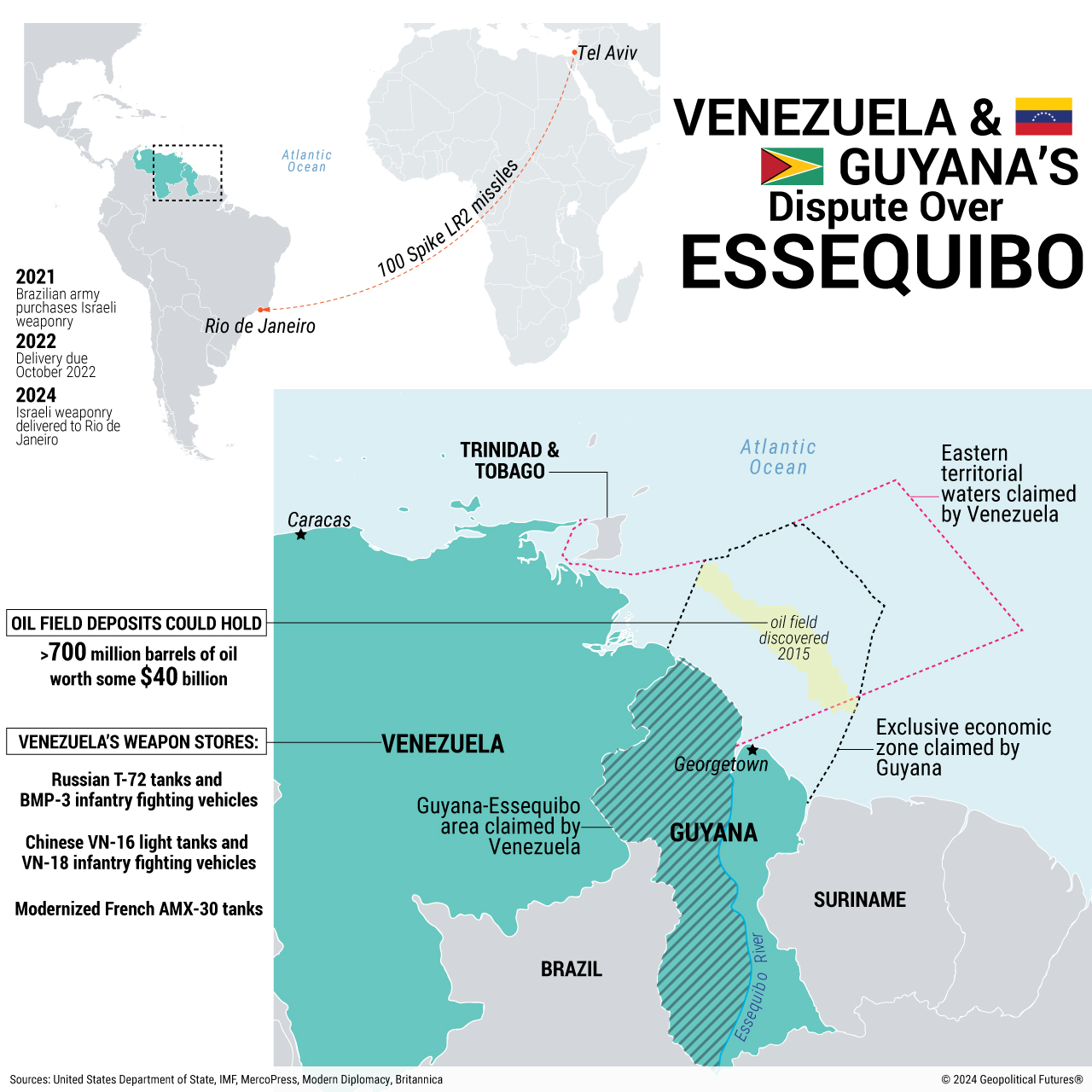Guyana and Venezuela are quarreling over an old land settlement, but just because the dispute has stayed peaceful for so long and neither country is equipped for war does not mean it can’t happen. Last December, in an apparently low-turnout plebiscite, Venezuelans overwhelmingly endorsed Caracas’ territorial claim to Essequibo, the western two-thirds of Guyana which Venezuela calls Guayana Esequiba. The Hague-based International Court of Justice, at Guyana’s request, has been reviewing the 1899 Paris arbitration that affirmed Essequibo as part of Guyana. Though it disputes the ICJ’s claim to jurisdiction, Caracas submitted supporting documents in April.
Guyana has virtually no army, but it has two powerful allies, the United Kingdom and Brazil. (The latter recently acquired Israeli anti-tank missiles and launchers.) It also has had the temerity to grant production licenses to foreign energy firms interested in developing the huge oil fields discovered off the Essequibo coast in 2015. According to Caracas, those waters are Venezuelan, and so is the oil. Buildups of Venezuelan troops near the contested border have reinforced Caracas’ verbal warnings. For Venezuelan leader Nicolas Maduro, who is polling well behind Edmundo Gonzalez ahead of the July 28 presidential election, an international crisis could be just what he needs to extend his rule.







